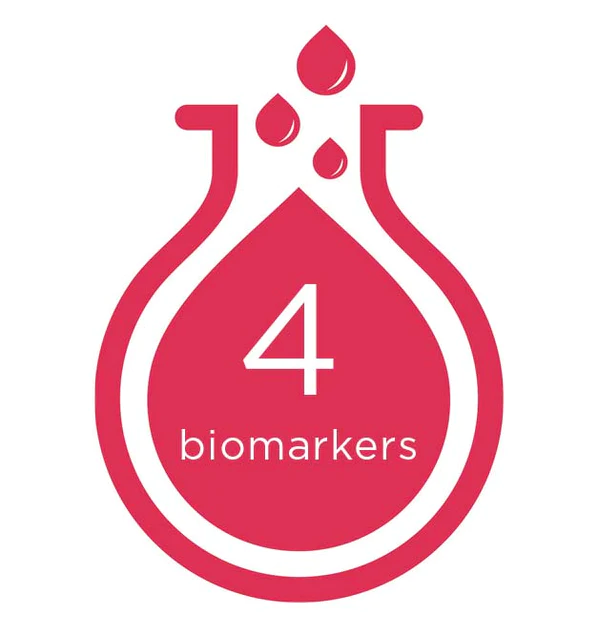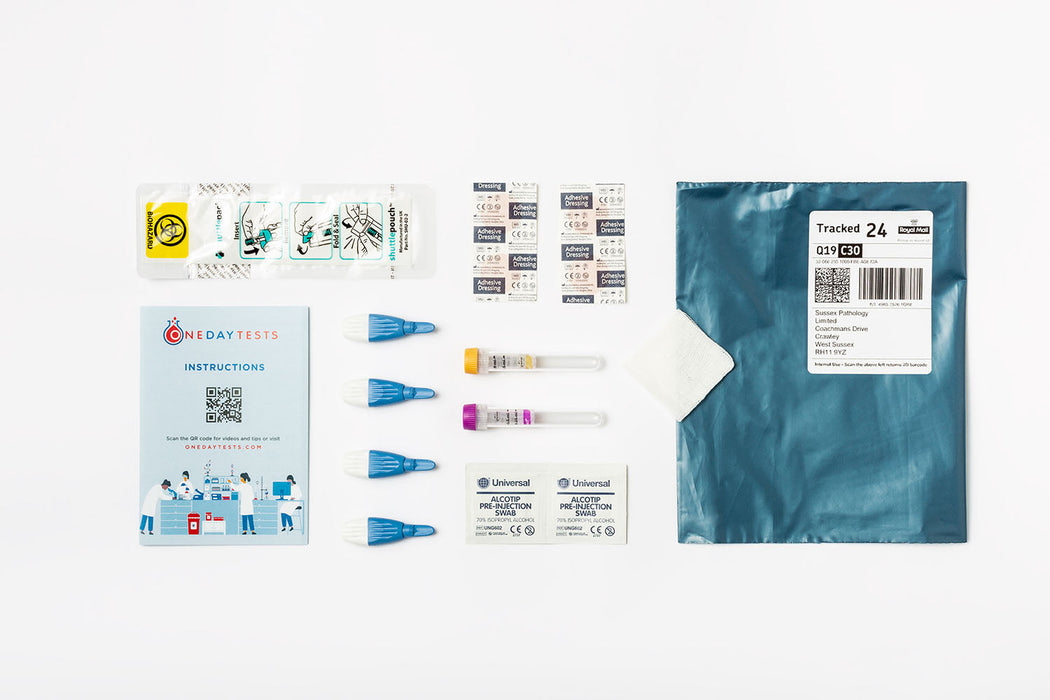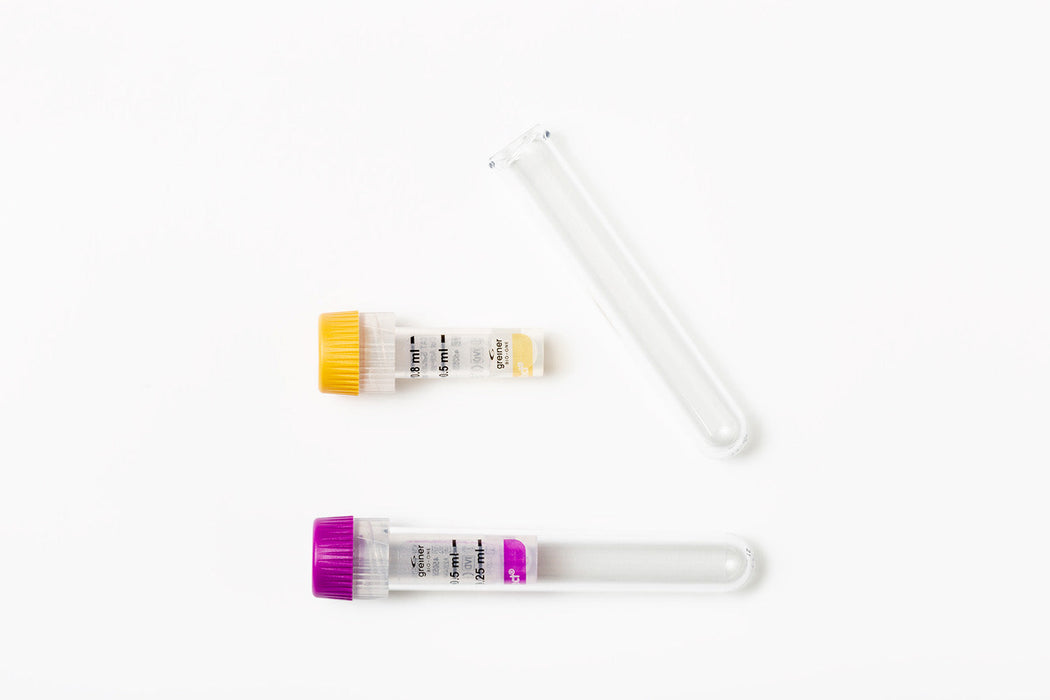The kidney function blood test is a crucial tool used by healthcare professionals to evaluate your kidneys' health and performance. These organs play a key role in filtering waste, balancing electrolytes, and regulating blood pressure. This test, essential for assessing overall health, influences treatment decisions and measures your 'estimated glomerular filtration rate' (eGFR) to gauge filtering capacity.
Symptoms like decreased appetite or nausea can indicate kidney issues, but not all deviations from the normal range require immediate intervention. Nevertheless, discussing your test results with your GP for a comprehensive evaluation is highly recommended.
Harness the power of One Day Tests for your renal health with our highly accurate blood test for kidney function. With rapid results from our CQC lab, comprehensive biomarker analysis, and the convenience of home testing, we provide the insights you need with the speed and accuracy you deserve.
About the Kidney Function Blood Test
The kidneys are pivotal in executing several critical functions, such as expelling waste products from the bloodstream, managing blood pressure, and ensuring the balance of electrolytes within the bloodstream. They are, however, susceptible to harm from infections, both inherited and acquired diseases, toxins, and certain medications. Often, kidney disease remains asymptomatic in its initial stages, making it challenging to detect early on.
This assessment determines your 'estimated glomerular filtration rate' or eGFR, a crucial indicator of your kidneys' efficiency. The eGFR calculation considers creatinine levels alongside factors like age, ethnicity, and gender, to gauge kidney performance.
An eGFR above 90 is deemed normal, while values above 60 are usually acceptable. An eGFR below 60 typically indicates kidney disease. Although kidney disease can exist with a normal eGFR, a standard result provides peace of mind. It's important to note that eGFR can naturally decrease with age, so a lower score might not always signal a significant health issue. Understanding your eGFR is vital as it can influence medication choices and dosages, as well as inform strategies for managing cardiovascular risk and blood pressure.
4 Biomarkers
-
KIDNEY FUNCTION
- Sodium
- Urea
- Creatinine
- eGFR -
UPGRADE
Need more biomarkers? Check out the Advanced Kidney Function Blood Test.

























